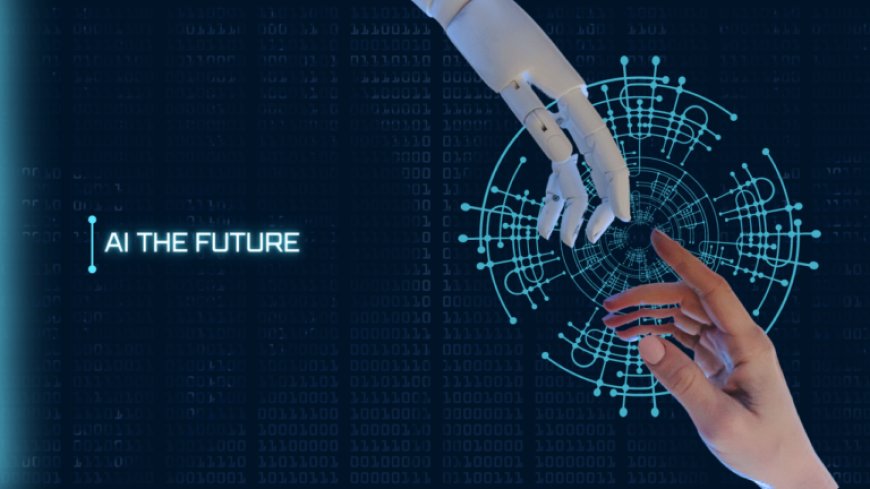The Rise of Artificial Intelligence: Transforming Industries and Everyday Life
The Rise of Artificial Intelligence: This book acquaints readers with trends and innovations that are gradually taking over industries and shaping the course of their everyday lives.

The Rise of Artificial Intelligence: This book acquaints readers with trends and innovations that are gradually taking over industries and shaping the course of their everyday lives.
The Rise of Artificial Intelligence
Thus, artificial intelligence (AI) is no longer an idea of the future available only in the movies. It has become a necessity in today’s world and is a significant aspect of productivity, communication, and sometimes life. Now with everything from your pocket to your car, cars are all being impacted by AI. In this article, the author would like to share some insights on ways through which the use of AI is gradually affecting different industries, positively impacting efficiency of processes, and gradually becoming part and parcel of our lives.

What, then, is artificial intelligence?
Artificial intelligence can be defined simply as the reproduction of human-like intelligence in machines. It is the development of computational methods that let computers and computer software and hardware carry out routines that are often associated with human intellect, like language interpretation, pattern recognition, problem solving, and decision-making. There are two main types of AI:
Narrow AI: This is a kind of artificial intelligence that is developed for a specific work, which may include facial identification or language translation. These are the AI systems, the majority of which are the modern ones, such as Siri and Google Translators.
General AI: This is regarded as a higher level of artificial intelligence that is capable of doing any work a human brain can do. General AI is not exactly far from science fiction, but even now it is a main aim of many scientists.
Implications on Industries by the Use of Artificial Intelligence
It is evident that AI pervades different spheres of our lives, changing the specificity of definite processes, decreasing the price, and developing new opportunities. Let’s look at how AI is transforming some major industries:
- Healthcare
AI is at the moment the brand new paradigm shift on diagnosing diseases, predicting them, and even offering custom-made solutions. It is possible for machine learning algorithms to read through the images in an attempt to ascertain ailments such as the initial stages of cancer. Other applications of artificial intelligence and machine learning technology in the health sector include chatbots and virtual health assistants where patients are receiving quicker responses to questions or questions in general and even being reminded to take drugs.
In addition, it has also facilitated the performance of other clerical duties like appointment setting and billing, so that healthcare delivery agents can consequently devote more of their time to patients. In the future, AI can opt for sophisticated robot-controlled surgeries, which can reduce the risks and improve performance.
- Finance
In the field of finance, AI is used to handle vast amounts of data, identify improper actions, and assist in trading. Computers can calculate market trends and complete trades more swiftly than any individual and perhaps provide better profit rates.
Another area of application of AI is in customer relations, where customers are assisted by virtual assistants through online banking and other aspects of banking. Any time of the day, it is ‘clocked’. They make use of machine learning algorithms in detecting suspicious activities and provide real-time alerts to banks, making them more secure.
- Retail
The use of artificial intelligence in retail is to enhance the shopping experience. Recommendation engines are an optimizer where products are suggested depending on the customers’ previous purchase behavior and web browsing history. Sophisticated chatbots are used in the case of recognizing customers’ needs, helping them to find what they are looking for, and returning items.
Moreover, the control of stocks has been made easier since the AI systems will foretell the demand level of various goods to avoid having excess stock or the opposite. Oh yes, some other firms are even employing AI in physical shops, like shops with no cashiers but cameras and sensors that follow movements and shopping baskets, and when you are through, you are billed.
- Manufacturing
In the manufacturing industry, automation is the way to go through the application of AI in production processes, all with the aim of enhancing quality. Using robots that are powered by artificial intelligence, one can be assured of minimized mistakes and wastage since the robots will be handling tasks that only require the repetitive input of data. Predictive maintenance systems help predict when certain equipment is going to malfunction and subsequently arrange for servicing to be done before the equipment malfunctions.
The application also plays a role in enhancing quality by sorting images in the same way an inspector would, but at a faster and more efficient pace, through image recognition that enables it to identify defects on products. Consequently, the production lines are unearthing smart solutions and increasing production efficiency.
- Transportation
Autonomous vehicles have many parents, but AI is at the heart of most of them. Self-driving cars operate on artificial intelligence to analyze data from other devices such as sensors, cameras, and radar to guide the car and to particularly avoid getting stuck in barriers. Self-driving cars are not yet a reality, but automakers like Tesla and Waymo have already started the race.
In the field of logistics, AI will help to decide the shortest routes with minimum fuel consumption and time. AI-integrated fleet management systems anticipate times when various maintenance services are going to be needed and are useful in route planning as well to make sure the goods get delivered in the best possible way.
AI in Everyday Life
AI does not only operate as the digital adjustment of a workforce or sector; it is also a regular fixture in our existence. AI today extends from assistants such as Alexa and Google Assistant to recommendation systems including Netflix and Amazon.
Smart Homes: There are smart home devices already by brands such as Nest that use AI algorithms to gain insight from user habits and preferences and then adjust the thermostat, lighting, and other aspects of the home to fit the user’s schedules.
Personal Assistants: Smart virtual assistants can help to remind people of something, answer their questions, and manage other smart devices in your house.
Social Media: Facebook uses AI algorithms, which show you posts from your feed on Facebook and Instagram in accordance with your preferences. This has, however, the latest fears on privacy and misinformation.
Language Translation: Some of the applications that incorporate this technology are Google Translate, which translates text within a blink of an eye, eradicating the barrier of language to facilitate communication with people in different parts of the world.
Challenges and Ethical Consideration
However, AI also has its drawbacks or issues, and it also has an ethical implication. The first one is the threat of job loss through automation; machines are increasingly replacing people for chores that can be repeatedly done. On the one hand, AI offers fresh options; on the other, professionals in some sectors may have to retrain or change careers.
Another important issue is privacy because AI systems gather huge amounts of personal information. It is vital that data is managed and disposed of in a legal and appropriate way also, due to the sensitive material often included within. However, there are concerns regarding the utilization of AI for societal exploitation in areas of developing deep fakes and other malicious ways, including automation of cybercrime.
The Future of AI
There are many things that we are yet sure are in the future of AI. In the future, there will be even more intelligent AI that will be able to learn while working and make changes to its work. This could help in finding solutions to problems in such areas as medicine, climate change, and space research.
However, to ramp up the outcome that AI can bring about, it is important to understand the issues surrounding this technology and its judicious application. This involves establishing rules, increasing bureaucracy, and officially mainstreaming AI, which means that the technology needs to be developed with societal objectives in mind.
Conclusion
AI has become one of the drivers of change in industries and literally gradually changes people’s lives. The opportunities are immense while the interference is still in its infancy. AI and the issues that surround it must be understood and recognized to make the most of the capabilities that it offers and to create a world that is smarter and linked more intricately.
What's Your Reaction?




































